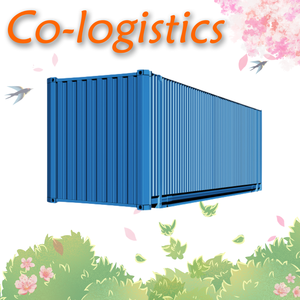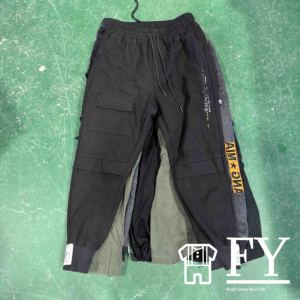(35338 products available)














































































































































































































There are two main types of cargo in bulk: dry bulk cargo and liquid bulk cargo.
Dry bulk cargo
Dry bulk cargo is a term used for goods shipped in large quantities without packaging. They are usually loaded and unloaded using specialized equipment like conveyor belts or grab cranes. Some examples of dry bulk cargo are:
Agricultural products: These include grains like wheat, corn, and rice, which are often exported from countries with large farms to be used for food or animal feed. Other agricultural products like coffee beans, cocoa beans, and spices are also shipped in bulk for international trade.
Minerals and ores: Bulk cargo ships transport iron ore, coal, aluminum, copper, and other metals worldwide for processing and manufacturing. These materials are essential for making steel, batteries, and electronic devices.
Cement and construction materials: Bulk ships carry cement, gypsum, sand, and gravel to construction sites worldwide. These materials are needed to build roads, bridges, and buildings.
Industrial materials: Bulk cargo ships transport chemicals, plastics, and rubber used in making consumer goods, medical supplies, and industrial equipment.
Liquid bulk cargo
Liquid bulk cargo ships are designed to carry large quantities of liquids. These specialized ships have tanks or compartments that hold the liquid safely and securely. Liquid bulk cargo includes crude oil, chemicals, and liquefied natural gas. Tankers are ships that carry crude oil and other petroleum products. The tankers have huge tanks that hold the liquid. The crude oil is pumped from the oil rigs into the tankers for transportation. The crude oil is then sent to refineries that process the oil to make gasoline, diesel, and other chemical products. Tankers can also transport finished petroleum products like gasoline, diesel, and jet fuel. These are sent to gas stations and airports for use.
Choosing the right kind of cargo in bulk requires careful consideration of various factors. Here are some of them:
Cargo type
It is essential to understand the nature of the cargo. What are its dimensions? What is its weight? What is its content? What is its value? What is its volume? These facts will help determine the best shipping method and how to handle it. For example, hazardous materials may require special handling and storage.
Shipping method
There are various ways to ship cargo. They include container ships, bulk carriers, and specialized vessels. Each has advantages and disadvantages. Therefore, consider the cargo's nature, destination, and budget to determine the best shipping method.
Packaging
Packaging is essential when shipping cargo in bulk. It helps protect the content from damage and makes it easier to handle. Therefore, consider the best packaging material and design for the cargo. Also, think about the packaging material's cost, availability, and environmental impact.
Customs clearance
Customs clearance can delay shipping and increase the cost. Therefore, ensure that the cargo has all the required documents and permits for customs clearance. Know the various customs regulations for different countries to avoid any issues.
Insurance
Cargo insurance is an excellent way to protect the content against any loss or damage. Some shipping companies offer insurance at a fee. It is advisable to know the various terms and conditions of different insurance companies.
Bulk cargo transport requires safety, efficiency, and proper resource management. While the guidelines for using and ensuring the product's safety are many, some of them are summarized below.
Proper loading
Proper loading of the cargo in the ship is important to ensure the goods are safe. The weight and volume of the cargo should be considered to ensure optimal utilization of space. Additionally, the cargo should be evenly distributed to avoid putting unnecessary strain on the vessel. The distribution also helps to maintain the vessel's center of gravity, improving stability while sailing.
Securing the cargo properly
Securing the cargo properly protects it from shifting during transportation. This shifting can cause severe consequences, such as capsizing the vessel. Therefore, the bulk cargo should be tied down using the right tools and equipment. The tools and equipment used should be appropriate for the specific type of cargo. For example, fragile items may require special handling and securing methods to avoid damage.
Regular inspections
Regular inspections should be done to ensure that the cargo is in good condition and the securing mechanism is intact. This inspection helps to identify and address potential issues before they escalate. It is worth noting that inspections should be done at different stages of the transportation process. For example, the cargo should be inspected at the loading, in-transit, and unloading stages.
Safety protocols
Safety protocols should be adhered to during the entire process of bulk cargo transport. The safety protocol includes guidelines, rules, and procedures designed to protect people, property, and the environment from harm. For example, hazardous materials should be handled and transported according to the legal requirements. Additionally, the personnel involved in the transportation process should be trained to operate the equipment safely and respond to emergencies effectively.
Transportation of Goods:
Cargo ships transport bulk goods like oil, chemicals, and grains. Containers are loaded onto the ships for transport to different ports worldwide.
Cargo Storage:
Bulk carriers have large cargo holds that store different types of cargo. The storage areas are designed to hold specific types of goods like liquid tanks for oil or sealed compartments for grains to keep the contents safe.
Large Capacity:
Bulk carriers can hold a lot of cargo, making them suitable for transporting large amounts of goods. This feature allows for the efficient movement of bulk materials, reducing the need for multiple trips and increasing overall transportation efficiency.
Specialized Cargo Holds:
Bulk carriers have cargo holds designed for specific types of cargo. For example, oil tankers have separate tanks for different types of oil.
Efficient Loading and Unloading Systems:
Bulk carriers have systems that make it easy to load and unload cargo quickly. These systems help to speed up the process of loading and unloading cargo, which is important for maintaining the efficiency of the shipping operation. Faster loading and unloading times can reduce the turnaround time of the ship in port, allowing it to spend more time in operation and increasing its profitability.
Safety Features:
Bulk carriers are designed with safety features to protect the cargo and the ship. For example, oil tankers have double hulls to prevent spills in case of an accident. These safety features are important for protecting the environment and reducing the risk of accidents that could harm the crew, the ship, or the surrounding community.
Streamlined Hull:
Bulk carriers have hulls shaped to reduce water resistance and improve fuel efficiency. A streamlined hull can significantly reduce the drag experienced by the ship as it moves through the water, leading to lower fuel consumption and reduced greenhouse gas emissions.
Robust Propulsion System:
Bulk carriers are equipped with powerful engines that allow them to travel long distances with heavy loads. A robust propulsion system is crucial for bulk carriers as they often have to navigate through rough seas and carry heavy loads. A powerful engine ensures that the ship can maintain its speed and navigate through the waves efficiently.
Advanced Navigation and Communication Equipment:
Bulk carriers have navigation and communication tools that help them travel safely and efficiently. The advanced navigation and communication equipment on bulk carriers improves the safety and efficiency of the ship's operation. Equipment such as radar, GPS, and electronic charts help the crew navigate safely.
Q1: What is the average time for bulk cargo shipments?
A1: The shipment time will depend on the distance between the origin and destination ports. Other factors, like the weather, port congestion, and the mode of transport, also affect the shipment time. For example, goods shipped by train will take longer than those transported by truck.
Q2: Can customers access their cargo during shipment?
A2: In most cases, customers cannot access their cargo during shipment. The cargo will be securely packed in containers or units and stored in ships, trucks, or trains. The cargo will be moved to the required destination first before any offloading or unpacking.
Q3: What are the documents required for cargo shipment?
A3: The documents required for cargo shipment will depend on the type of goods, country of origin, and intended destination. Common documents include a bill of lading, commercial invoice, packing list, customs declaration, and certificates. Some documents may be required for customs clearance, while others are necessary for insurance purposes.
Q4: Are there any restrictions on what can be shipped in bulk?
A4: Yes, there are restrictions on what can be shipped in bulk. Certain countries restrict or prohibit the importation of specific goods. Commonly restricted items include weapons, illegal drugs, endangered wildlife, and counterfeit products. In some cases, certain items may require special permits or licenses for importation.
The keyword "cargo in bulk" has shown significant growth in web search volume, averaging 480 monthly web searches with a notable one-year change of 125% and a three-month change of 177%. Over the past twelve months, the data reveals a fluctuating trend with peaks and valleys corresponding to specific months.
Analyzing the monthly search data for "cargo in bulk," we observe a steady increase from 320 web searches in December 2023 to 720 web searches by May 2024, followed by a sharp decline in June 2024 to 590 web searches, and a subsequent spike in July 2024 to 880 web searches. This pattern indicates significant variability, with notable peaks in May and July, and lower web search volumes in the months of August, September, and October, each recording around 320 web searches or less.
The fluctuations in web search volume for "cargo in bulk" could be influenced by several factors including seasonal demand changes, economic factors, or shifts in business services trends. The sharp increases in May and July might be linked to specific industry events or seasonal shipping demands, while the declines in August and September could reflect a typical off-peak period in the shipping industry. This detailed analysis of monthly trends helps in understanding the cyclic nature and potential influencing factors of web search volumes related to cargo services.